A Ground-breaking irrigation technique, solar-powered organic farming, and lending an entrepreneurial edge to millet cultivation — Krishnendu Bandyopadhyay brings success stories from rural West Bengal
In the heart of West Bengal’s agricultural landscape, at Simurali village in the arid Bankura district, Maya Khan is leading a quiet revolution. On her two bighas (one bigha is a measure between 1/3 acre and one acre) of paddy field, Maya has embraced a ground-breaking irrigation method known as Alternate Wetting and Drying (AWD), marking a significant departure from traditional farming practices.
AWD is a sustainable paddy cultivation technique that has gained global recognition for its effectiveness in conserving water, reducing labour costs, and cutting down greenhouse gas emissions, introduced to Maya by SwitchON Foundation. Unlike traditional, continuous flooding methods, AWD involves periodically drying and re-flooding rice fields, allowing for better resource management.
Maya was initially hesitant to adopt AWD, but after learning about its benefits, she decided to give it a try. The method involves using a 30 cm-long, 10 cm-wide water pipe with holes along 15 cm of its length. The perforated section is inserted into the ground, allowing Maya to monitor soil moisture and determine the optimal time for re-flooding the field.
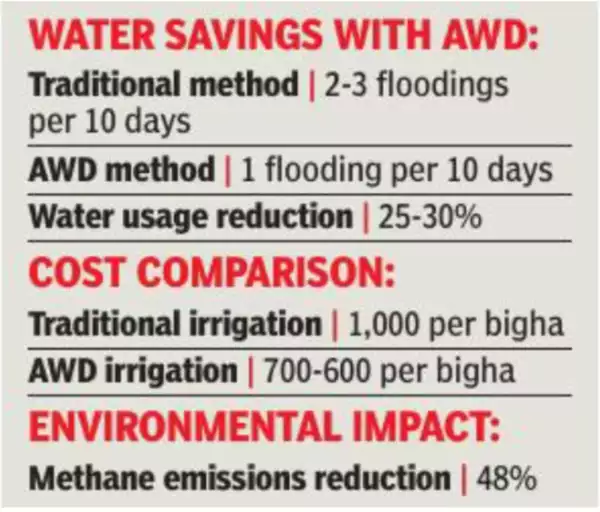
“Earlier, the cost of irrigation per bigha was Rs 1,000. After adopting AWD, the cost has come down to Rs 700-600. Moreover, the yield of rice has increased by 20%,” Maya shared.
The success of Maya and other farmers in the region is largely attributed to the efforts of the SwitchON Foundation, an organisation that has been instrumental in promoting AWD through stakeholder meetings, training sessions, hands-on demonstrations, and the installation of 700 water pipes across West Bengal to support AWD implementation. It has also trained 203 farmers on AWD techniques.

With AWD, SwitchON Foundation has empowered farmers to adopt climate-smart agricultural practices, leading to enhanced food security and environmental sustainability.
Maya’s success with AWD is a testament to the potential of innovative farming techniques in transforming agriculture.
At Jatrapur village in West Bengal’s Nadia district, technology was once a far-off dream for most farmers. The idea of accessing advanced farming tools or benefiting from government-sponsored schemes seemed unattainable.
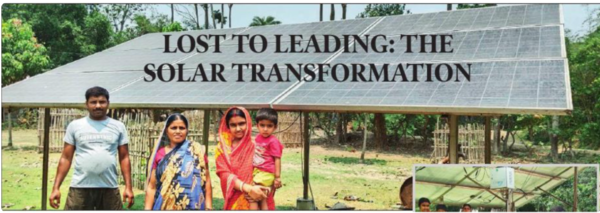
However, winds of change swept through this rural community when a young farmer named Alok Mallick embraced solar energy, forever altering his approach to farming and his outlook on life.
Alok, 32, was never interested in farming. However, after passing his class 10 final exams, he was forced to discontinue his studies and take up farming instead, following the untimely death of his father that left him to shoulder the responsibility of caring for his mother, younger sister -and their 3.5-acre farmland.
Alok’s initial attempts at farming were fraught with difficulties. His knowledge was limited, and their small pond was inadequate to address their irrigation needs.
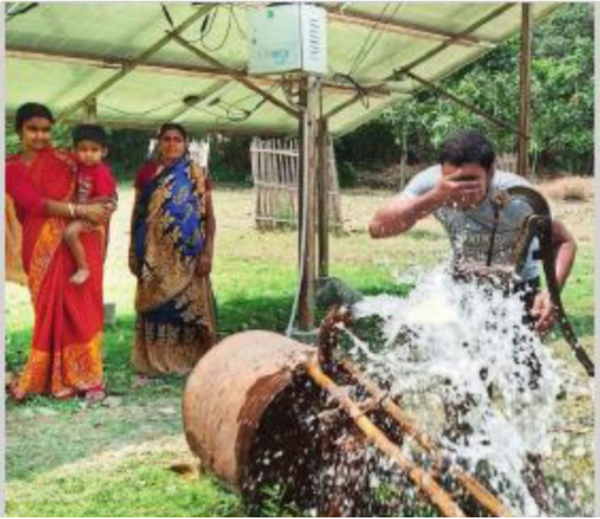
Just when Alok was at his lowest, representatives from SwitchON Foundation visited Jatrapur to meet local farmers. They offered training on organic farming and solar technology, introducing Alok and his fellow villagers to the concept of solar pumps and the subsidies available under the PM Kusum Yojana.
A year on, Alok now cultivates multiple crops, and not just during the monsoon. He has also revived his pond and ventured into fish farming, adding a new revenue stream to his farming operations.
The solar pump, unlike its diesel counterpart, is easy and safe to operate, allowing even Alok’s wife to manage the equipment in his absence.
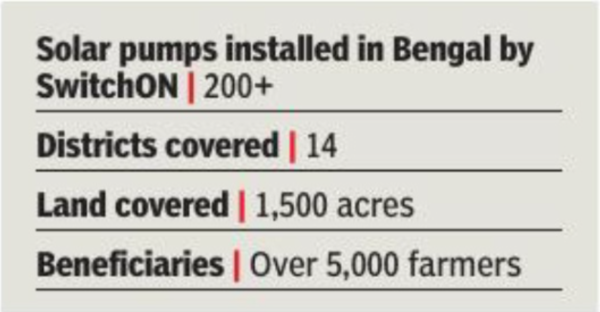
Thanks to the SwitchON Foundation, Alok has come to know about the environmental advantages of solar energy and has since encouraged other farmers in his village to make the switch to solar farming.
Journey of the ‘Milletpreneur’
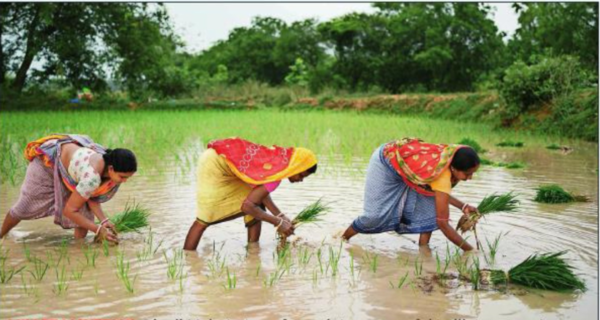
Dipali Mahato, a 34-year-old resident of Kusum Juria village in Hura block, Purulia district, has seen herself transformed from being a humble farmer to a successful ‘milletpreneur’. Her inspiring journey towards sustainable agriculture, particularly in millet cultivation, has been majorly supported by SwitchON Foundation, which played a pivotal role in mobilising farmers, helping raise awareness of benefits of millet farming, and providing the essential tools and knowledge that helped Dipali and many others like her embrace this nutritious and climate-resilient crop.
Dipali’s transformation began with her active participation in focus group discussions (FGDs) and state and district-level workshops organised by SwitchON Foundation. These sessions deepened her understanding of millet cultivation and its numerous benefits.
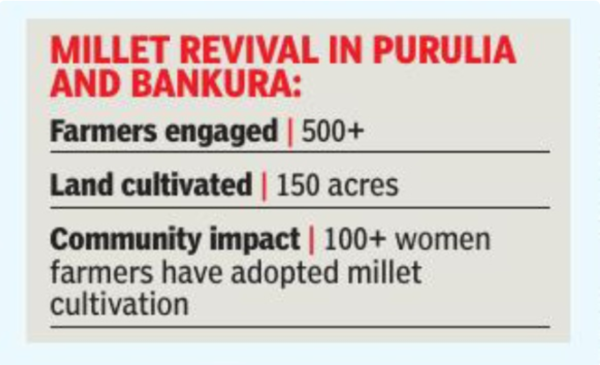
SwitchON Foundation further assisted by ensuring access to quality seeds, enabling Dipali to start her millet cultivation journey on 0.35 acre of land. Her initial harvest during the Kharif season yielded 37 kg of millet.
Recognising Dipali’s passion for cooking, the SwitchON Foundation trained her on millet cooking, helping expand her repertoire of millet-based recipes.
Collaborative efforts of Anandadhara Prakalpa by WBSRLM and SwitchON Foundation culminated in the inauguration of a Millet Café in Hura block. Here, Dipali took on a leading role, actively engaging in food preparation and management.
Encouraged by her achievements, more women are now eager to participate in training programmes, adopt millet farming practices, and explore entrepreneurial opportunities within their own communities.
“I am excited to prepare and serve different millet recipes such as millet laddoo, kheer, fritters, malpua, khichdi, and many more,” Dipali said with joy.
Dipali’s journey is a powerful reminder of how targeted interventions, skill development, and community support can transform livelihoods and empower rural women.






